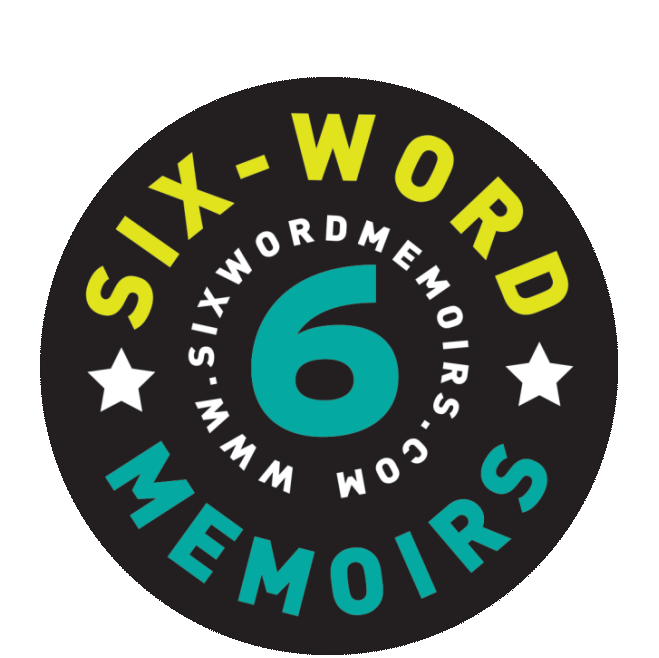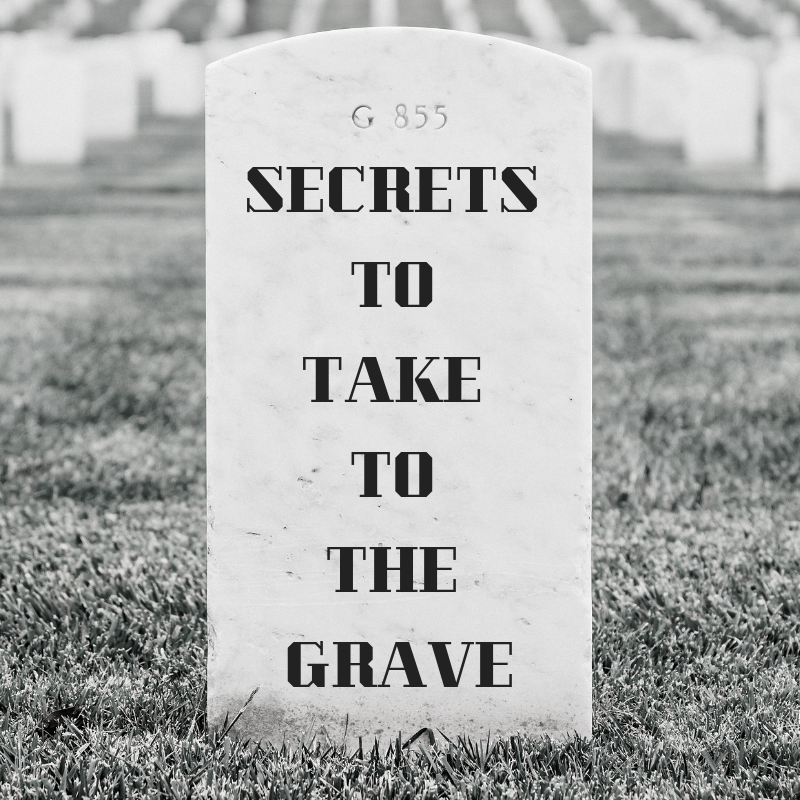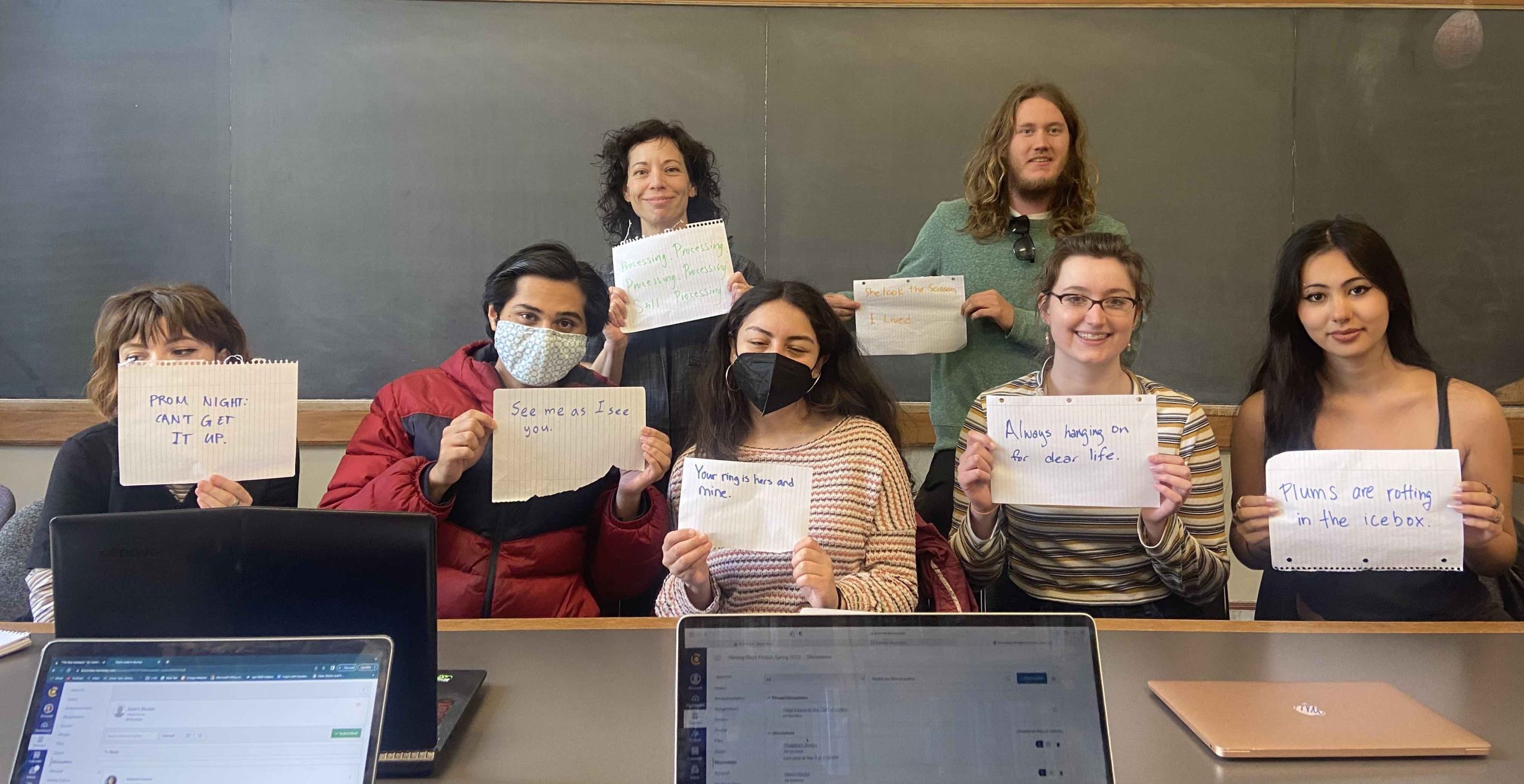
It was the day after Valentine’s Day that I walked into my upper division Short Fiction class at UC Berkeley to find a stranger seated beside my professor. He introduced himself as Larry Smith, a close collaborator of my professor Melanie Abrams, and asked if anyone in the room had heard of Six-Word Memoirs, the short-f0rm storytelling website he started.
Many of my classmates hadn’t. They kept their elbows resting on the table, perhaps trading a few stolen glances with their peers for any sign of recognition. My hand shot up. For me, Six-Word Memoirs was a familiar tool that had been used by several of my teachers growing up. I first encountered Six-Word Memoirs in eighth grade during a poetry unit at Union Middle School in San Jose, California, and then again in my sophomore year at Leigh High School. After our sophomore teacher read our writing for the first time, she told us that we needed to learn how to cut out all the unnecessary fluff and get into the meat of what we were trying to say. Hence, she introduced Six-Word Memoirs. It’s hard to be tangential when you only have six words to work with, right?
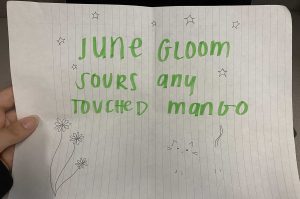
“June gloom sours any touched mango.”
Now, at UC Berkeley, Larry sat right at the head of our workshop table, teaching the same lesson. He asked us to spend five minutes creating our own Six-Word Memoir to describe our present-day lives. He explained that a Six-Word Memoir can be an encapsulation of your whole life, one specific part of it, something that reflects how we are feeling today, or a motto or way of living we abide by.
A quiet concentration fell over the room, the only sound that of clicking keyboards and pen against paper.
We shared our memoirs, some garnering laughter (“Dear diary, today I pissed myself.”), others a somber applause (“Always climbing, never reaching, standing still.”). I think we each understood in that moment how powerful such a short combination of words could be.
But our work with Six-Word Memoirs wasn’t over quite yet. Near the end of class, our professor told us that we would be writing a Six-Word Memoir alongside our short stories: six words to characterize our protagonist.
The results have been extraordinary. At the end of each story we read, those six little words so perfectly encapsulate the heart of every character. See for yourself:
“Your ring is hers and mine.” — Elena Sanchez
“See me like I see you.” — Valmic Mukund
“Trying hard to burst through cracks.” — Kate Graham
“Always and forever running with scissors.” — Emily Putnam
“Can’t take back what you give.” — Dale Tanner
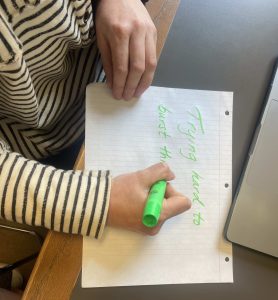
The Six-Word Memoir form is such a great tool for writers because it forces you to boil a thought down to its simplest, most direct essence. It can be used to capture the soul of a character, the core of a story, the crux of a conflict.
But the Six-Word Memoir form isn’t just for writers — it’s for everyone. Whether you use Six-Word Memoirs when outlining your new novel, or when journaling your innermost feelings, anyone can jot down six words as a summation of their thoughts, and that is what makes Six-Word Memoirs so impactful. Six-Word Memoirs are accessible to anyone and everyone.
Hey teachers! Since we first launched The Six-Word Memoir Project, educators across the spectrum have found the six word format to be a terrific classroom assignment and catalyst for self-expression. At our Six in Schools section, we celebrate students’ work from classrooms around the world. Download one or all of our free teacher’s guides—including our most recent pandemic edition here. Email us at [email protected] and share your classroom’s six-word journey and your students could be featured as a future Classroom of the Month.
Post a Comment
You must be logged in to post a comment.
